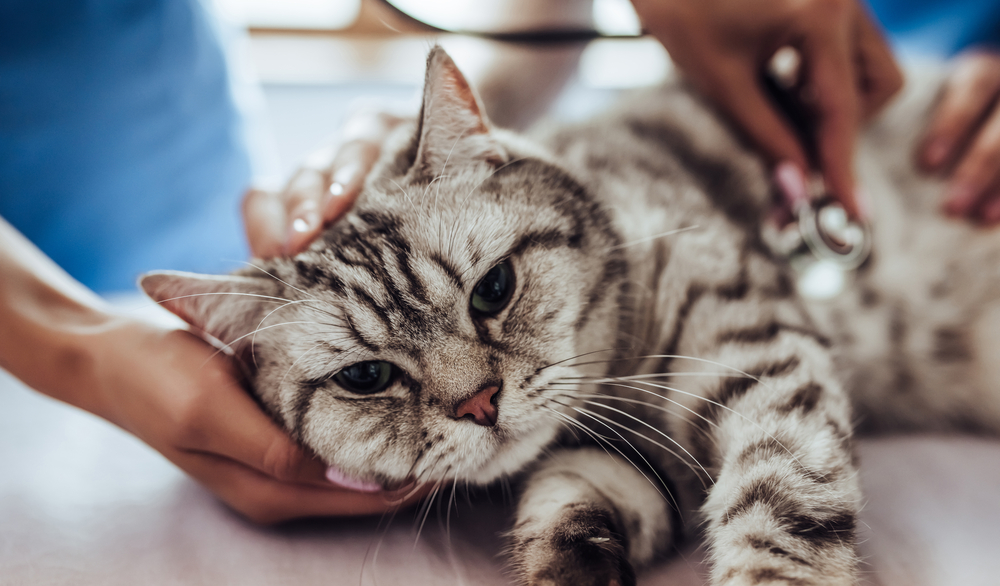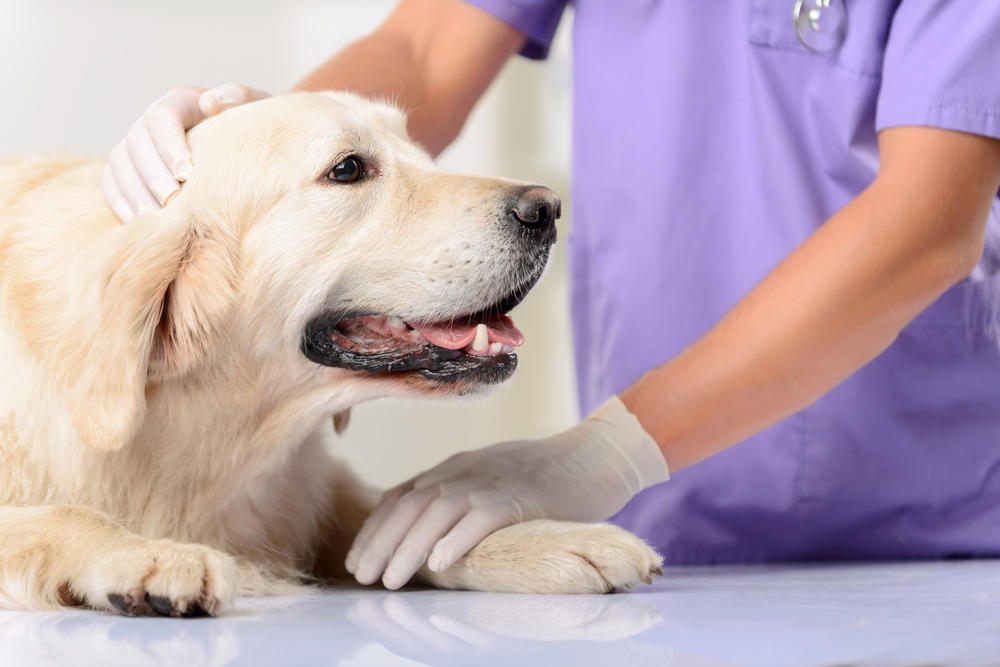Veterinarians recommend annual or biannual wellness screenings for pets to ensure health complications are detected in the early stages when treatment is easier. Our Hearthstone Veterinary Hospital team explains why these visits are important for your pet’s health.
#1: Your pet ages faster than you
Pets age significantly faster than humans. Small-breed dogs and cats are considered “old” at about 7 years of age, and large-breed dogs reach this distinction at around 5 to 6 years of age. Senior pets are at much higher risk for many significant health problems, and they should be evaluated by a veterinary professional every six months to help detect issues before they cause complications. Potential age-related pet conditions include:
- Heart disease — Approximately 60% of senior dogs have some degree of heart disease, and cats can be affected, as well. Many cases go undetected until the condition is advanced, resulting in congestive heart failure. We auscult your pet’s heart during a routine wellness check to detect abnormalities, such as heart murmurs and arrhythmias, that may indicate heart disease.
- Arthritis — Arthritis commonly affects senior pets, causing pain and limited mobility. Our veterinary team assesses your pet’s gait, and palpates their joints to ensure they aren’t experiencing joint pain.
- Cataracts — Cataracts can lead to vision loss, but if managed and monitored early, many options are available to keep your pet’s eyes healthy and comfortable.
- Cognitive dysfunction — Similar to Alzheimer’s disease in humans, cognitive dysfunction in pets causes confusion, increased anxiety, memory loss, and training accidents. No cure is available for this condition, but treatments can help slow progress.
#2: Your pet instinctively hides vulnerabilities
Your pet’s ancestors had to be constantly aware of their surroundings, and exhibiting vulnerabilities increased their risk of being targeted by a predator. Since your pet lolls on your bed all day, you wouldn’t think they would worry about showing weaknesses, but this instinct is innate, and pets often do not show illness signs until the condition has advanced. Routine wellness exams allow our veterinary professionals to examine your pet so we can detect subtle changes that indicate health complications. We examine every aspect of your pet, including:
- Eyes — In addition to cataracts, we can detect conditions such as dry eye, glaucoma, and retinal degeneration.
- Lymph nodes — Enlarged lymph nodes can indicate issues such as infection, inflammation, and cancer.
- Chest — We auscult your pet’s heart and lungs to check for any abnormalities.
- Abdomen — Our veterinary team palpates your pet’s abdomen to ensure their organs are the correct size, and to check for masses.
- Skin — Skin abnormalities can indicate underlying health issues, and we closely assess your pet’s skin to ensure their coat is healthy.
#3: Pet obesity is an increasing problem

The majority of U.S. pets are overweight, but many pet owners don’t realize their pet is carrying excess weight. Overweight pets are at increased risk for several serious health problems, such as cancer, diabetes, kidney disease, and arthritis. During a routine wellness exam, our veterinary team assesses your pet’s weight, and will help you address the issue if necessary. Our assessment includes:
- Weighing your pet — We use an accurate scale to weigh your pet, and we track your pet’s weight at every visit.
- Assessing your pet’s body condition score (BCS) — A BCS is a tool for measuring your pet’s body fat over certain areas that we use in conjunction with your pet’s weight to more accurately determine their weight status.
If your pet is overweight, we will devise a weight loss program to help them safely lose the excess pounds.
#4: Dental disease is a significant problem for many pets
The majority of pets have some degree of dental disease by 3 years of age. The bacteria that cause dental disease can lead to issues such as foul breath, bleeding gums, loose and missing teeth, and tooth root infections. In addition, the bacteria can enter your pet’s blood stream and damage their heart, kidneys, and liver. We assess your pet’s mouth, and will recommend a professional veterinary dental cleaning to address any dental disease that we find.
#5: Diagnostics help detect certain conditions that may affect your pet
Not all health problems can be detected on a physical examination, and our veterinary team performs several diagnostics to ensure your pet is healthy. Routine wellness diagnostics include:
- Complete blood count (CBC) — A CBC assesses your pet’s red blood cells, white blood cells, and platelets, so we can detect issues such as anemia, infection, blood clotting disorders, and certain cancers.
- Biochemistry profile — A biochemistry profile examines several body systems to evaluate your pet’s overall health, and helps us detect conditions such as diabetes, kidney disease, liver disease, and electrolyte abnormalities.
- Urinalysis — Our veterinary team assesses your pet’s urine, evaluating the color, cloudiness, content, and concentration, to detect conditions such as urinary crystals, diabetes, urinary tract infections, and diabetes.
- Fecal testing — We evaluate your pet’s fecal sample for parasites such as roundworms, whipworms, hookworms, giardia, and coccidia.
- Heartworm test — Our veterinary team performs a heartworm test to ensure these harmful parasites are not present in your pet. Heartworm combo tests also detect tick-borne illnesses.
Regular wellness screenings are an important part of your pet’s health care plan. If you would like to schedule a wellness exam for your pet, contact our Hearthstone Veterinary Hospital, so we can help your pet live a long and healthy life.







Leave A Comment